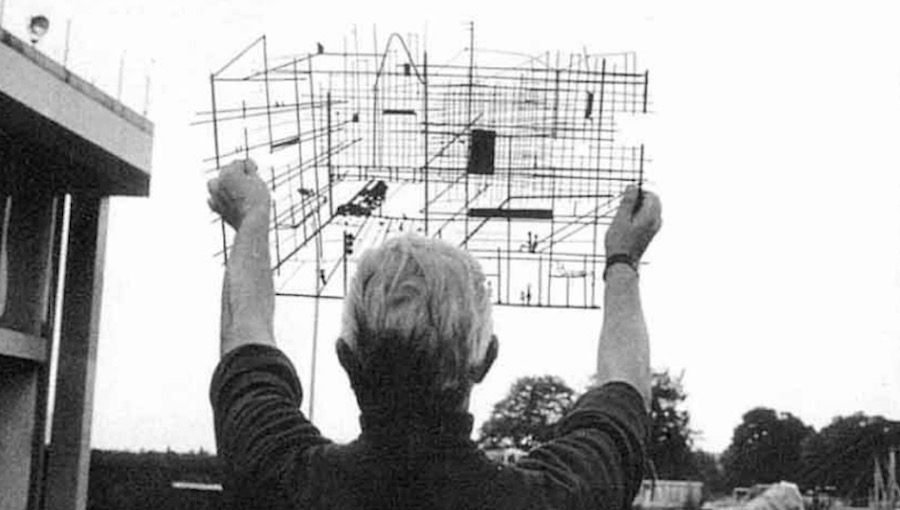Love is in the air at Fanbase Press! In this magical month of romance and enchantment, the FP Staff and Contributors decided to stop and smell the roses. Throughout the week of Valentine’s Day, a few members of the Fanbase Press crew will be sharing their personal love letters to the areas of geekdom they adore the most.
Bonjour, Monsieur Tati –
Playtime (1967) is one of my favorite modern interpretations of the films from Dziga Vertov, Walter Ruttmann, Jean Vigo, and Alberto Cavalcanti in which they focused their lens on their respective cities during the 1920s. Day and night, their cities bustled with non-stop activity amongst newly built high rises with large display windows, showcasing new, modern gadgets to make life easier and uniform functional furniture. The soft curves of impressionism gave way to the rigid lines of constructivism. The cities were spectacles of modernity, pushing aside the pastoral yesteryear of a simpler time.
Film critics judged Playtime as your folly project for a number of reasons. First, because you mortgaged your house, your film studio, and even your future inheritance for this film. Like the card player who goes all in, hoping and believing that the cards in their hands will lead to the jackpot, you believed in your film. Instead of using an existing location, you built not just a set, but a city – “Tatville” – outside of Paris, and you rebuilt it after flooding damaged it.
Second, because you held steadfast to your vision and your fastidious directorial methods, you were criticized for being wasteful with your resources, such as time and cast. For example, scenes with the lighting you waited all day for were missed because you languished on one actor’s socks not being the right color.
Third, because you were seeking to distance yourself from a character you created which had become too well loved by fans. You wanted to kill Monsieur Hulot off, yet you decided instead to make him a secondary character with a number of recurring doppelgängers.
And fourth, because your chose to focus on visual and sound comedic elements rather than a familiar narrative structure, like your earlier films or of other French films of the time.
While the film was not understood by audiences and was a financial failure, leading to your own financial woes, Playtime has become the cinematic masterpiece you believed it would be. How could that be? Because you were meticulous in creating and studying your city. The early 20th century films that situated cities as spectacles resonated in your own film through your critique of modern inventions which were supposed to make life easier, such as the broom with headlights, or how people’s movements were dictated by the architecture they interacted with.
Where Playtime excels, though, is through its unique comedy that is allowed to breathe and shine in the loose or near absence of a narrative structure. The way you choreographed visual symbolism – the neon “O” as a halo over a priest’s head for instance – and the sounds created a symphonic journey was comedic genius. You once said you wanted to create a democratic comedy; hence, you made your film an invitation to look about the sweeping long shots in 70mm glory, so that our eyes could direct our experience and find the things we found humorous. You succeeded, and it is why Playtime must be watched multiple times. We can direct a different experience each time.
Merci beaucoup, Monsieur Tati, for your conviction to your creative vision and process, because the cinema would not be quite as rich without the inclusion of Playtime. It is a cinematic beauty, a marvel – c’est manifique!
Bien amicalement,
Michele

